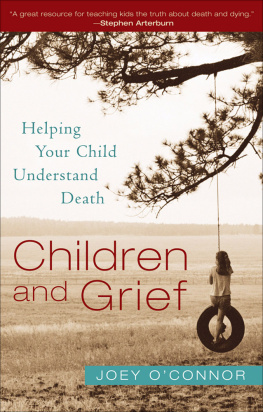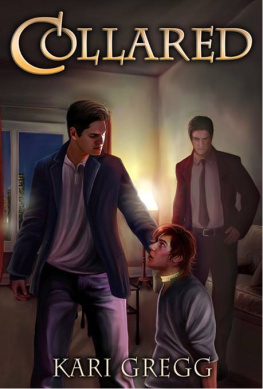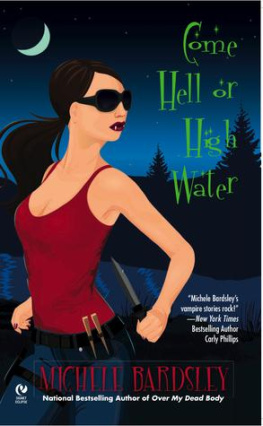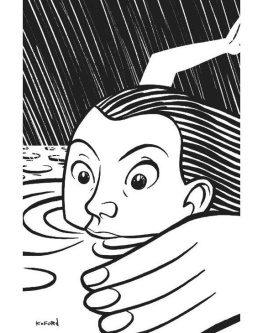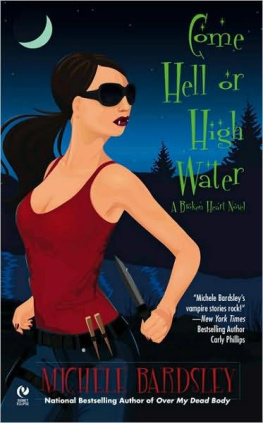JUSTICE FOR
LAUGHING
BOY
CONNOR SPARROWHAWK
A DEATH BY INDIFFERENCE
Sara Ryan
Jessica Kingsley Publishers
London and Philadelphia
Contents
Foreword
I always say that the people who taught me about human rights and the law were my clients: people who were wrongly accused of crimes they did not commit; women and children who were not listened to when they had been raped, abused or battered; people who suffered persecution in their homeland but faced a wall of disbelief when they sought asylum here; people who because of their race, sexuality, religion or other difference were subjected to the pain and humiliation of mistreatment; vulnerable people who suffered neglect and cruelty or indifference at the hands of the state. Theirs were stories of deep inhumanity yet securing justice was no mean feat. Institutions close ranks to protect reputations and persons in authority all too often defend the indefensible.
Connor Sparrowhawk was without doubt an extraordinary human being. His learning difficulties and epilepsy may have meant he needed special care but he was a life-loving, talented and amazing boy with a hugely supportive family and a great network of friends. He died by drowning in a shabby, under-resourced NHS unit for those with special needs. He was on his own in a locked bathroom when he had an epileptic seizure; no one was within hearing distance. Nurses and other carers had not been informed of his medical condition and received no training whatsoever in how to deal with such an event. This is the human cost of austerity policies. I wept when I read this powerful book.
The suffering of families who face tragedy can be unbearable. To their grief is often added the inability or unwillingness of the authorities to explain what happened. When relatives seek explanations, they frequently face obstruction, lies, delaying tactics and non-disclosure of relevant evidence. Then they are the ones accused of being vexatious and trouble making.
Yet in the face of such wrongfulness what always amazes me is that some incredible people find resilience and strength to persist in their quest for justice. These are the true champions of human rights not lawyers.
Connors mother Sara Ryan is a remarkable woman. She could not let the death of her son go unquestioned. She could not rest until she had answers and placed responsibility at the doors of those who were really guilty of failing Connor. Those people further up the chain of command who are richly rewarded yet rarely held to account.
Sara took the arduous course of seeking a public inquest into her sons death. She was supported by the wonderful team at INQUEST, a great NGO which seeks open justice for unexplained or preventable deaths. Family, friends and acquaintances built a strong and vibrant campaign around the tragic loss of Connor. And I am proud to say that a group of amazing, committed lawyers from my own chambers argued the case and fought successfully for the family.
Justice involves openness and accountability. Saras recounting of her familys journey lays bare the deep inequities within our legal system and our society as a whole. People with learning difficulties and autism receive insufficient support and care. People seeking justice face a system skewered in favour of those with money and resource.
This book is both heart-warming and heart breaking. It is a story of love. The pursuit of justice for Connor was a battle for us all. We cannot remain silent as our welfare state, our health and care system is starved of resource and brought to its knees. We cannot walk on by as the gulf grows between rich and poor. This book is about the society we live in and duty we all have to care for each other.
Baroness Helena Kennedy QC
Authors Note
My name is Sara Ryan and my partner is Richard Huggins. We have five children: Rosie, Will, Connor, Owen and Tom. Richard and I live in an Oxford suburb with Tom, our youngest.
This book tells the story of our family, our son Connor and our fight for justice. It describes real events, but given the number of people who offered their help over the past few years some names have had to be left out to simplify the telling of our story.
Thank you to all those who have offered help and assistance over the years and to those who continue to seek #JusticeforLB.
I died this morning.
In the bath.
Im dead now.
Mum? Am I dead, Mum?
Preface
4 July 2013
That morning. 4 July 2013. Ive patchy memories. Some things remain crystal clear. It was baking hot and I caught the bus into Oxford as usual I work at Oxford University as a researcher.
Fran, a friend who has a son in Connors class, texted to ask if he was going to go to the school prom the following evening. I replied saying Id ask him later when I visited him.
He was due to visit the Oxford Bus Company that morning. I didnt (and still dont) remember walking through the market in Gloucester Green on the way to work but later found photos Id taken. Photos of the remarkably mundane, a sort of final capturing of everyday life in Oxford city centre on a mid-summer Thursday morning. Of life as it was.
I remember Id bought breakfast or lunch and, unusually for me, put it in the staff fridge in our enormous, open-plan office. Im not a keep-things-chilled sort of person. Closing the fridge door was the last thing I did before my mobile rang. Dr Jayawant from the Unit. Was it a good time to talk? Connor was on his way to the John Radcliffe Hospital. Found in the bath. Unconscious Sunshine was spilling into the open-plan space through grubby windows. Very few people around still. I headed out of the office, checking details with her.
Did I use the lift? I must have. I hung up, walked through the glass doors, back out onto the street and was heading to the bus stop before the details began to seep in. Was it a good time to talk?
Much later, at Connors inquest, the 999 call that the same consultant psychiatrist made to emergency services was played to the jury. She was so relaxed and unforthcoming; the responder suggested a four-hour response slot. Back out in brilliant sunshine I realised I should probably get a cab. I rang Caroline, our office administrator, to say I was going to the hospital. She came straight down and caught up with me outside the railway station. Caroline has a learning-disabled daughter in her forties.
Rich, who is also an academic specialising in political science at Oxford Brookes University, was at a staff event in the Town Hall. I texted him and Fran from the cab. Calm texts. Connor was on his way to the John Radcliffe. Hed been there before in an ambulance, after all. I thought about the information Id been told, in an odd, slightly fragmented way.
Found unconscious in the bath.
Airway cleared before going in the ambulance
His key nurse was with him and would ring if there was any change
Any change?
The black cab crawled along the Banbury Road towards the hospital. The sun continued to bake. Each metre covered brought increasingly harrowing, tumbling and terrifying thoughts. My colleague Caroline remained calm. I repeatedly returned to whether Connor was conscious or not and whether he might have experienced some sort of neurological damage. This sent me into a sort of hysteria (in my mindI dont think I shared it). What if he was in a coma? I kept trying, and failing, to imagine what a brain injury might mean for Connor.




